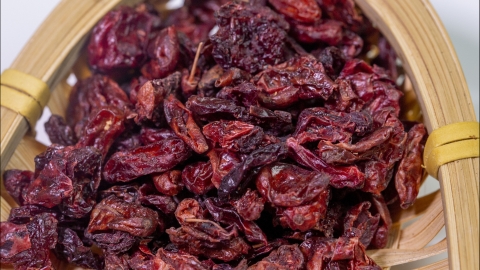Can Lycium barbarum be used as a substitute for Cornus officinalis?
Generally speaking, Lycium barbarum (goji berry) cannot replace Cornus officinalis (Asiatic cornelian cherry). The detailed analysis is as follows:

Although both Lycium barbarum and Cornus officinalis are commonly used tonic herbs with certain similar effects, such as nourishing the liver and kidneys, they differ in pharmacological actions, therapeutic focuses, and indications. Lycium barbarum can promote and regulate immunity, increase testosterone levels, enhance physical strength, and stimulate hematopoietic function. In contrast, Cornus officinalis has diuretic and blood pressure-lowering effects, can relieve intestinal spasms, and inhibit bacteria such as Shigella dysenteriae and Staphylococcus aureus.
Lycium barbarum primarily nourishes yin, generates body fluids, improves vision, and moistens the lungs, whereas Cornus officinalis excels more in replenishing both yin and yang deficiencies of the liver and kidneys. Although both are liver and kidney tonics, Cornus officinalis has the characteristic of astringency within its nourishing action, while Lycium barbarum mainly nourishes yin and alleviates dryness. In prescriptions for treating deficiency syndromes accompanied by slipping or for simultaneously replenishing yin and yang, these two herbs cannot be used interchangeably.
When using herbal medicines, it is recommended to choose and combine them according to individual constitution and specific condition under the guidance of a qualified physician, avoiding self-directed substitution or use of herbs to ensure their efficacy and safety.
References
[1] Huang Jie, Yu Yang. Exploring the Challenges and Strategies in the Communication of Traditional Chinese Medicine Culture Using the Pharmacological Effects of Lycium barbarum as an Example [J]. Overseas English, 2022, (23): 1-3.
[2] Chen Ni, Liu Qianqian, Deng Yingying, et al. Research on the Current Application Status of Health Products Containing Cornus officinalis [J]. Chinese Traditional Patent Medicine, 2024, 46(11): 3768-3771.









